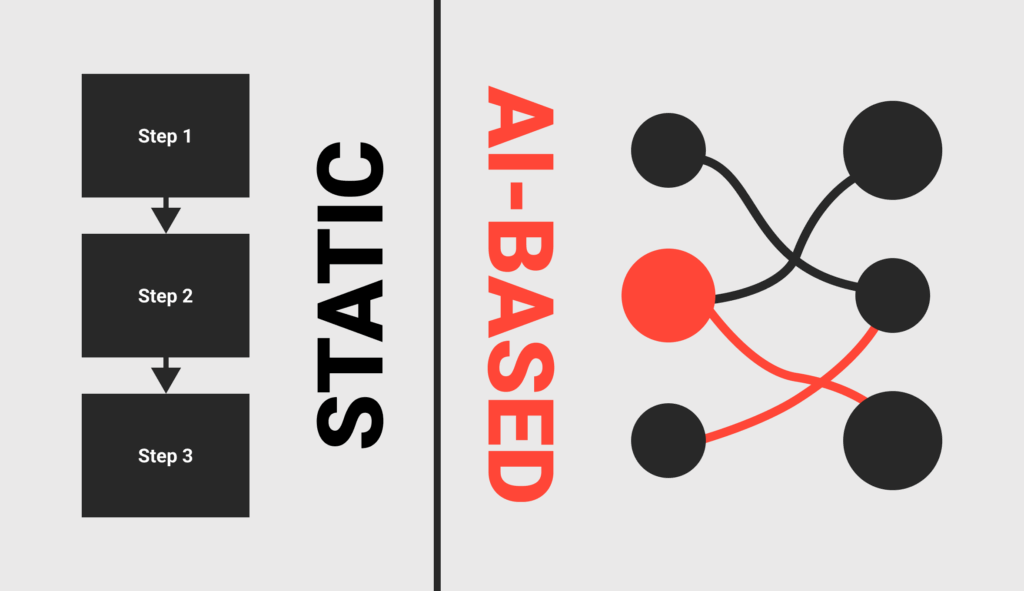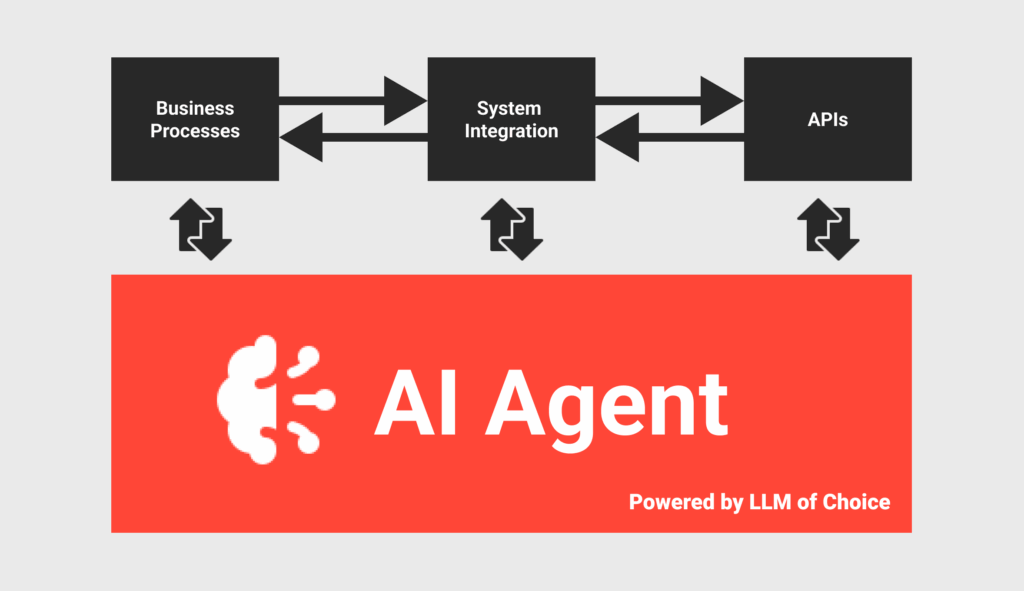A New Era of Integration and Automation: AI agents in Scheer PAS

A Glimpse at What’s Coming
Stellen Sie sich vor, Ihre Integrationen benötigen keine statischen Regeln, Entscheidungen oder Datentransformationen mehr. Und trotzdem geschieht die Ausführung weiterhin intelligent und adaptierbar in einem automatisierten System.
Das ist unsere Zielsetzung für unsere aktuelle Entwicklung an Scheer PAS iPaaS: Die Intelligenz und Autonomie von KI Agenten mit der Welt der Integration und Automatisierung verbinden.
Why We’re Rethinking Integration
Seien wir ehrlich, Integration von Systemen und Prozessautomatisierung hat sich im letzten Jahrzehnt kaum weiterentwickelt. Immer noch definieren wir Datenverknüpfungen, modellieren Prozessabläufe und bauen Integrationslogik. Entweder durch Programmiersprachen oder im No / Low-Code Ansatz. Eine durchaus zeitaufwendige Art, um Geschäftsprozesse zu automatisieren. Auch geraten wir bei aufwändigeren Prozessketten schnell an eine Komplexitätsschwelle, welche uns die Limitierungen von statischen Logikfolgen aufzeigt.
We believe it’s time for a new approach. One that combines the best of traditional rule-based systems with the adaptability of AI.
Durch die Nutzung von KI Agenten, wird es nicht mehr notwendig sein jede Datenumwandlung, Verknüpfung oder Entscheidung zu definieren. Stattdessen werden intelligente Agenten unmittelbar in der Automatisierung von Aufgaben tätig werden und kontextbezogene Entscheidungen treffen. Dadurch vermindern wir die notwendigen Arbeitsschritte und erzielen eine schnellere Delivery der Lösung.

What Are AI agents?
AI agents are autonomous, task-driven components powered by advanced Large Language Models (LLMs). They’re capable of interpreting inputs, analyzing situations, and executing actions—all without needing every step hardcoded. Unlike traditional programs, AI agents can adapt to changing data and requirements in real time, making them suitable for dynamic and complex environments.
You define what the agent should achieve, provide the tools and data it can access, and it takes over from there. Whether it’s syncing records, automating decisions, or performing complex integrations, AI Agents deliver intelligent automation right where it’s needed.
What to Expect
We will provide a Low-Code environment in the Scheer PAS Designer to build and deploy AI agents, giving integration developers the option to use AI agents for their integration and automation tasks. Users will also be able to combine the autonomous, dynamic and intelligent nature of agents with the static and well-defined integration and automation capabilities Scheer PAS is known for. This hybrid approach means you can let AI agents take over where flexibility and real-time decision-making are required—without sacrificing control and reliability.
Key features to work with AI agents will include:
- Definieren von strukturierten Eingabe-/Ausgabeformaten und promptbasierte Aufgabenbeschreibungen
- Choose from built-in tools or connect to external ones via Model Context Protocol (MCP)
- Entwickeln Sie eigene, benutzerdefinierten Tools und stellen Sie diesen den KI-Agenten zur Verfügung
- Auswahl des optimalen LLMs zur Steuerung der Verhaltensmuster der KI
- Run AI Agents standalone or integrate them into BPMN workflows and integration services

Excerpt: The Model Context Protocol (MCP)
Recent developments like the Model Context Protocol (MCP) are addressing integration challenges of AI Agents. MCP is an open standard that enables seamless connections between AI agents and external data sources and tools. MCP serves as a universal adapter, enabling the agents to access the information they need without custom integrations for each data source. Scheer PAS will support the Model Context Protocol.
Potential Use Cases
AI Agents can unlock new possibilities across various industries and scenarios. They’re not limited to one specific field or use case. Whether it's integration tasks or business process automation, AI agents can be applied to use cases that have traditionally relied on static logic and fixed workflows, as well as to those that were previously too complex, dynamic, or unstructured to automate efficiently. Examples are:
- Automatically synchronizing customer data between a Salesforce CRM and an SAP ERP system, resolving format mismatches and enriching records using AI-driven logic
- Extracting meaning from unstructured documents — for example, an AI Agent could process incoming customer service emails, understand the request or issue described, decide on the appropriate response or action, and automatically trigger the necessary updates or workflows in internal IT systems like ticketing, CRM, or ERP platforms.
When is it Coming?
The first version of AI agents in Scheer PAS will be available for selected users in autumn 2025.
We believe this technology will not only change how integration is done with our platform, but across the industry. If you’re an integration developer looking for the next big leap in automation—AI agents are it.
Stay tuned on our LinkedIn channel and our Blog for more updates on this!



